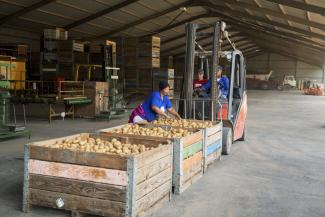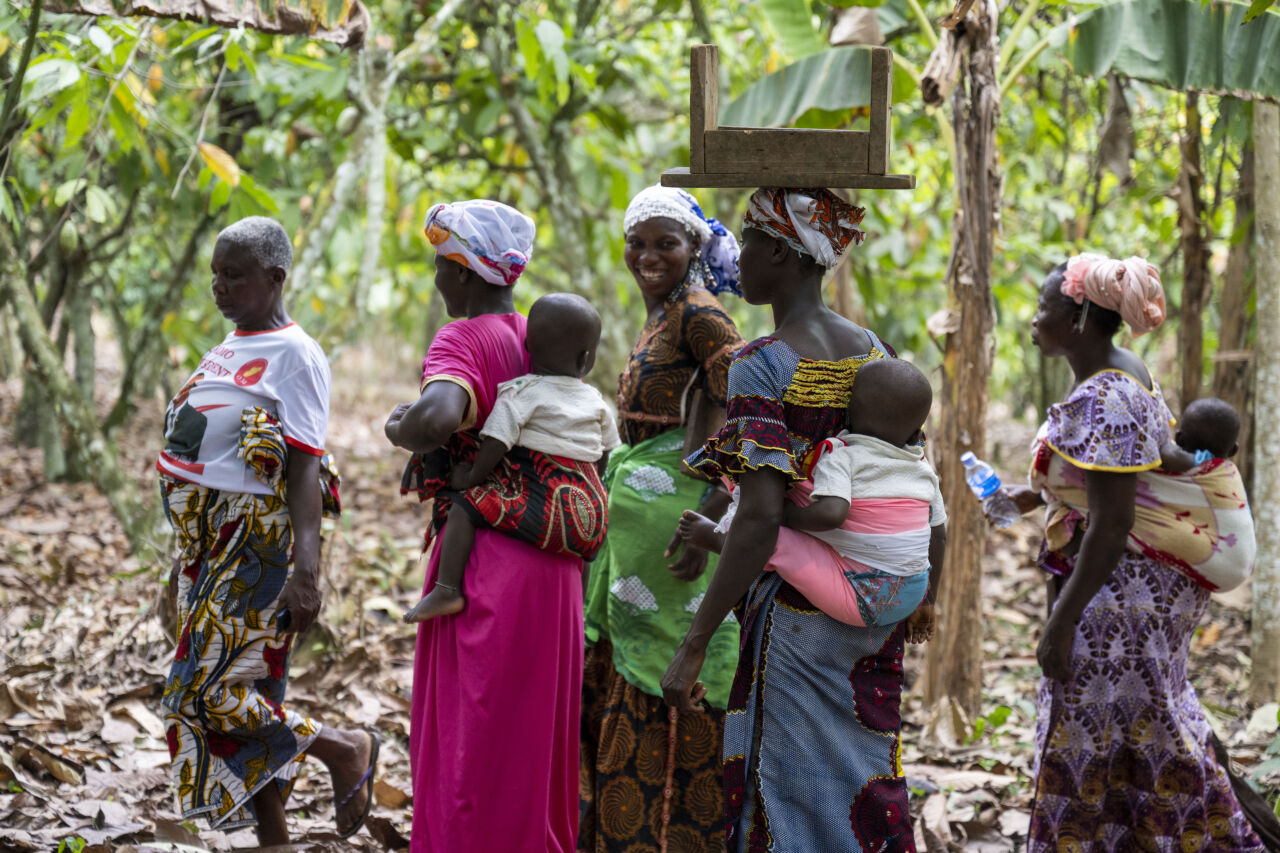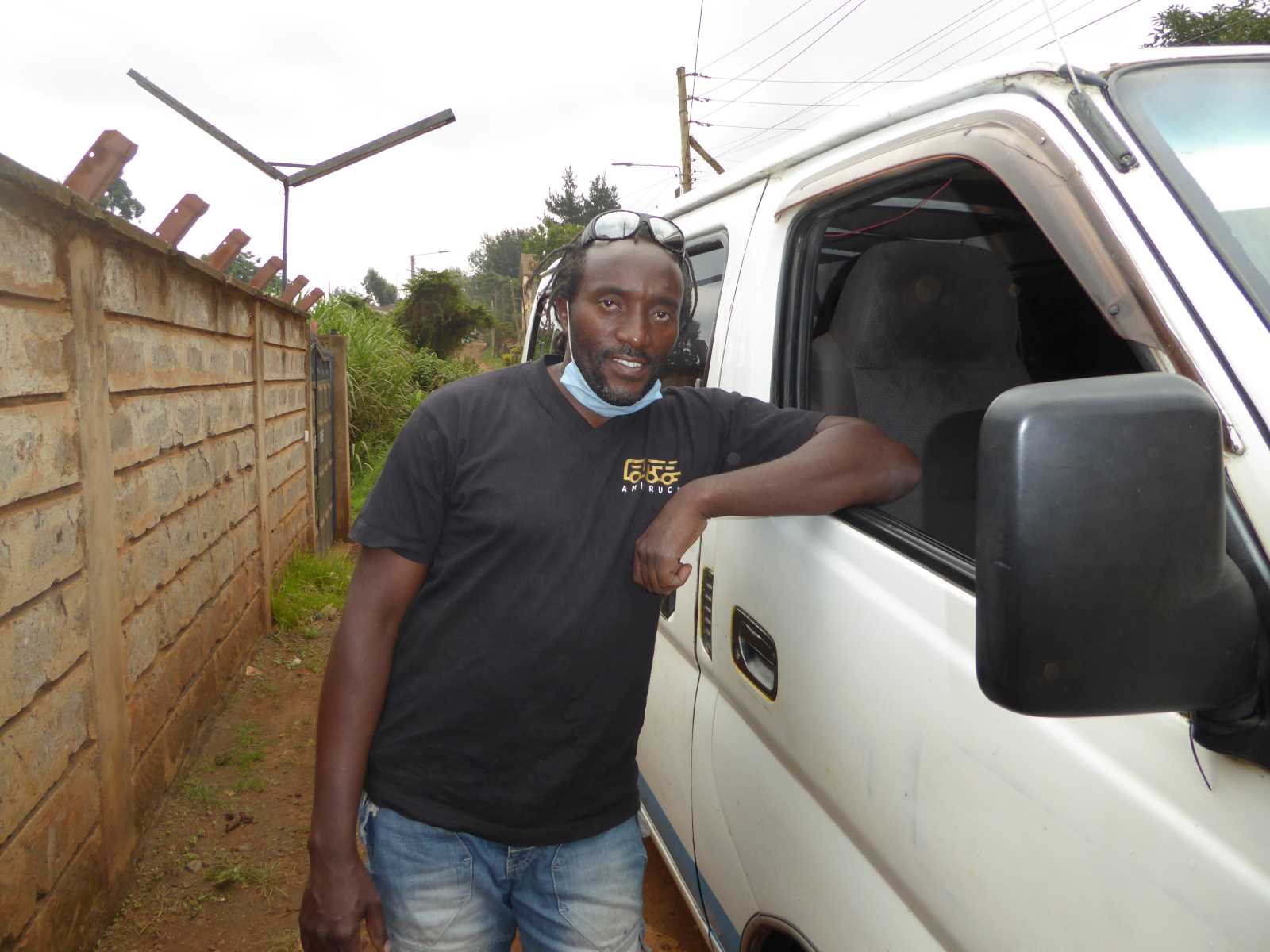Rural youth
Clearing the jobs hurdle

Development experts are taking aim at a major problem in Africa: finding meaningful jobs for the estimated 25 million young people who enter the labour market each year. By 2030, an eye-popping 320 million new jobs need to be created.
Nearly half of the new labour-market entrants live in rural areas and about 70 % of them are under 30 years of age. The scale of the need for jobs and the impact of employment on economic growth make it crucial to design employment-promotion programmes that are efficient and effective.
Youths seeking work in Africa’s rural areas face a range of daunting problems: their access to land, markets, credit, skills training and job-placement services is very limited. Therefore, they tend to be unemployed, underemployed or engaged in subsistence-level self-employment.
To find out how to improve matters, the GIZ on behalf of the Germany’s Federal Ministry for Economic Cooperation and Development (BMZ) commissioned a study to evaluate 11 employment-promotion programmes that are implemented by GIZ.
The study, titled “What works in rural youth employment promotion?” identified good practices that should guide rural youth employment promotion:
Consider institutional scenario
Programmes to promote youth employment must align with national or continental development agendas. They must foster a sense of stakeholder ownership.
A good example is the Agricultural Technical Vocational Education and Training (ATVET) programme. ATVET is part of the Comprehensive Africa Agriculture Development Programme for agricultural transformation in Africa which, in turn, is a flagship initiative of the African Union (AU). ATVET promotes agricultural technical training in 12 AU member states. Its training materials match national certification requirements, so governmental training centres can use them easily. The positioning under the AU gives the ATVET programme considerable weight among national partners, who see it as a continent-wide, government-led initiative.
In general, programmes should rely on local structures. It makes sense to link training elements or other support activities to national policies and employment promotion. Embedding programmes in national frameworks may add to their complexity, but it certainly contributes to efficacy.
Another good example is the “Pro-Poor Growth and Promotion of Employment in Nigeria Programme”. It involves various public institutions and promotes financial literacy. Its curricula can be integrated into the national education system, so over 60,000 young people are reached across the country.
Give young people a say
Rural youths often believe that policymakers do not take their interests into account. The GIZ’s “Food Security Through Improved Agricultural Productivity” is designed to change that perception. The programme advises national and local officials in Kenya on promoting sustainable agriculture.
Moreover, the programme involves youth associations in consultations on national strategies that affect rural youth, especially in agriculture. By giving youth people a channel to speak directly with their national and subnational governments, the programme earns trust and helps governments to draft better-targeted policies.
Update reputation of agriculture
Rural youth often see agriculture as a low-opportunity occupation with outmoded working practices. Employment-promotion programmes can change this perception by highlighting promising opportunities, good working conditions and modern practices.
For example, programmes can promote the development of modern agri-food networks. Food processing and food delivery are important components of feeding a population. Agri-food systems include parties who grow, harvest, process, package, transport and market agricultural products. Consumers, restaurants and waste disposal matter too.
Offering youth a broader view of agriculture and related industries can help to spark their interest. They should be told about the economic opportunities afforded by coordinating agri-food networks. Throughout the value chain, there are attractive on-farm and off-farm employment opportunities.
Broaden of employment promotion
Employment promotion involves a range of activities, including skills-training, enterprise development and matchmaking services. Better coordination and integration can increase impact.
A good example is offered by Morocco’s “Promoting Youth Employment in Rural Areas” programme. Commissioned by the BMZ and carried out by the GIZ in cooperation with agencies of the Moroccan government, this programme has developed an integrated approach to employment promotion in rural areas.
It focuses on establishing local job centres in rural areas in collaboration with grass-roots organisations. The centres provide job-matching services, and offer short-term skills training adapted to local needs. Beyond that, the programme is spawning a support ecosystem for young entrepreneurs by establishing local employment committees to initiate a multi-actor process of dialogue. These committees are led by the local provincial governor and consist of representatives from the public and private sector, as well as from civil society.
Promote growth
Multi-component approaches are especially useful in rural areas with limited support structures. They allow individuals who have completed entrepreneurship training sessions to access financial services or follow-up support such as mentoring. The idea is to offer interconnected support.
A good example is GIZ’s “Employment Promotion Programme” in Sierra Leone. Successful graduates of its basic skills-training sessions have an opportunity to participate in a coaching programme delivered by the GIZ. It is called “SME Loop”. SME stands for small and mid-size enterprises. The SME Loop trains young entrepreneurs in business skills, product/market positioning, entrepreneurial attitude, negotiating skills, customer relations and financial literacy. SME Loop graduates can apply for funding for their companies from the GIZ-managed programme “Facility for Innovation”.
Help indentitfy market niches
New entrepreneurs often do not know where to start. A good way to help them is to identify potential opportunities by means of a “business opportunity study”. The Tunisian “Sustainable Agriculture and Rural Development” programme, for example, uses such studies to identify business opportunities within agriculture value chains. It has helped young rural entrepreneurs to develop business ideas that respond to real market needs.
Use relevant criteria
Monitoring and evaluating programme success is crucial. The yardsticks used should be specific to rural youth. In the past, indicators showing the degree of success in promoting rural youth employment were often added belatedly to a previously defined evaluation framework. In the case of Agricultural Technical Vocational Education and Training for Women (ATVET4Women), for example, the current performance indicators largely fail to reflect the programme’s gender-transformative approach. In its upcoming second phase, ATVET4Women will introduce a new theory of change with more relevant indicators.
Share best practices
As youth employment promotion in rural areas is a relatively new topic, the exchange of experiences among programmes can help turn a successful innovation into mainstream practice.
There are many good examples of sharing best practices. Continental or global GIZ programmes like “Employment for Sustainable Development in Africa” (E4D) or “Green Innovation Centres for the Agriculture and Food Sector” have strong peer-learning elements that help them replicate good practices. E4D, for example, conducts regular conferences at which financiers, government officers and scholars assess results and lessons learnt with E4D team members.
Coordinate among partners
Youth employment is a subject that involves many actors and cuts across several government departments. So-called “silo-thinking” often blocks progress. One way to overcome it is strong coordination among all parties involved. Steering committees can ensure that all parties align their actions and take into account perspectives they did not consider in the past.
For example, both the “Eco-Emploi” programme in Rwanda and the “Agricultural Value Chains for Sustainable Development” (A4SD) programme have established steering committees to set priorities and coordinate interventions. The committees include representatives from relevant ministries, private-sector companies and vocational training schools as well as technical experts. Their meetings help to build trust, foster cooperation and coordinate action.
Seek co-funding
Co-funding can increase programme flexibility as partners strive to achieve complementary goals. Some programmes thus have multiple financing partners, including the EU, philanthropic foundations and private sector entities.
For example, co-funding from the Bill and Melinda Gates Foundation helped the A4SD programme to expand its scale. At the same time, it encouraged other private sector partners to participate.
Link
More information about GIZ work on rural youth employment promotion:
https://www.giz.de/en/worldwide/67975.html
Claudia Knobloch is a director of Endeva UG, a Berlin-based research and consulting institute.
c.knobloch@endeva.org
Christian Pirzer is a project lead at Endeva UG.
c.pirzer@endeva.org











